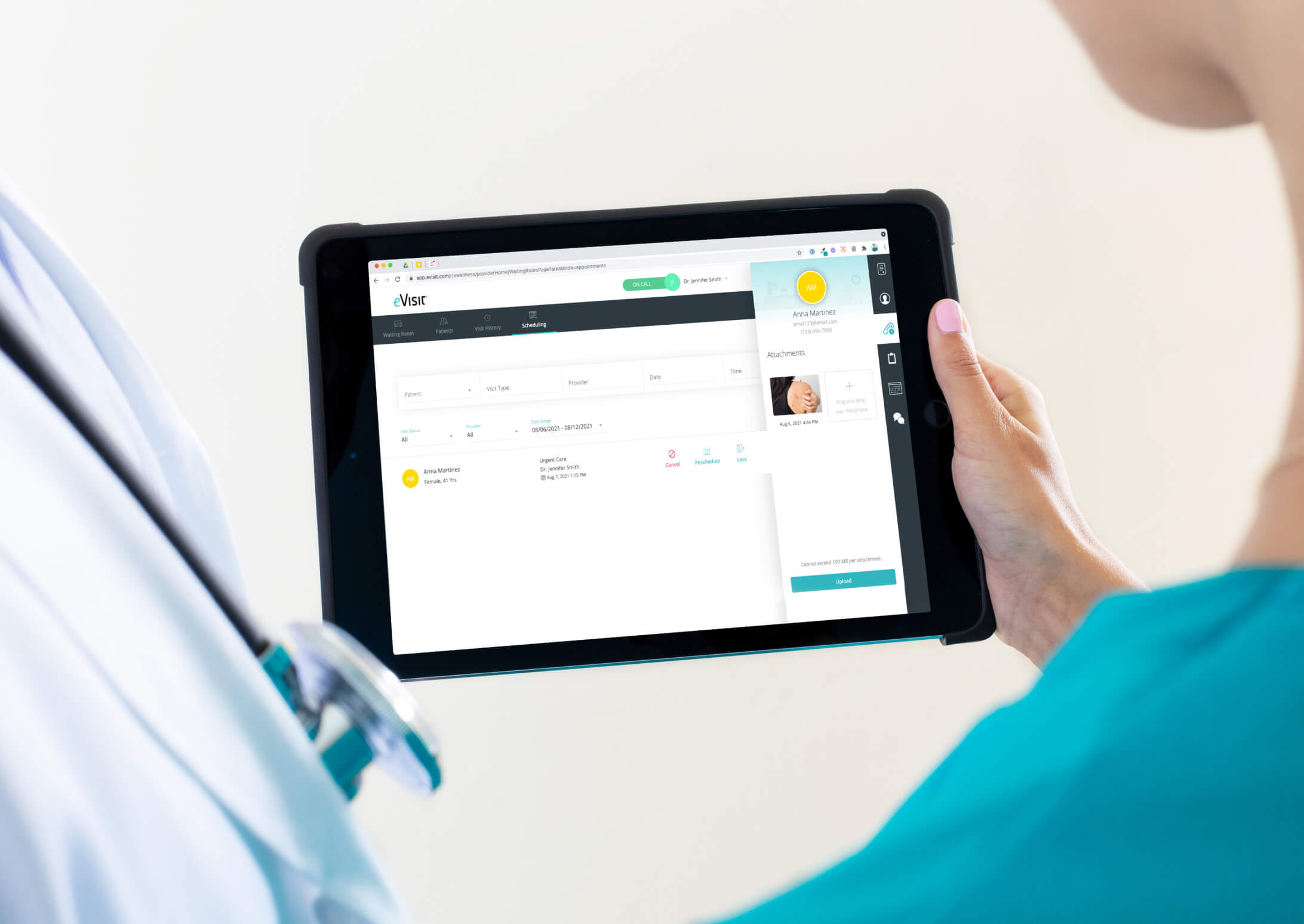Telepsychiatry Software and Solutions
History of telepsychiatry
Telepsychiatry solutions have rapidly expanded in recent years. Like most other medical professionals, psychiatrists have been using telephones to provide remote care for years. But most of the time, this was only for emergencies, to consult a referring doctor, or to answer quick patient questions. Now, with the availability of telepsychiatry software that enable video chat, more psychiatrists are offering remote visits to patients as a convenient treatment option.
The patient demand for telepsychiatry solutions is growing too. In the U.S., there is currently a shortage of available psychiatrists, especially in specialties like child psychiatry. Many Americans don’t have adequate access to mental health services and professionals in their area. As a result, more people are turning to telepsychiatry solutions that let them connect with a mental health professional, no matter their location.
HIPAA-Compliance
Like other medical specialists, psychiatrists have to comply with HIPAA standards. While it is possible for psychiatrists to hold video chat sessions with their patients via popular platforms like Skype, these platforms are not HIPAA-compliant and were not designed to be used for telemedicine. Instead, psychiatrists need to look for telepsychiatry software that was built to the highest security standards and will protect the privacy of their patients’ health information.
Reimbursement
In 2014, Medicare released several new codes to allow for telepsychiatry reimbursement.
Different Types of Telepsychiatry for Patients
While the most popular form of telepsychiatry solutions are real-time, video-chat options, there are several other types of telepsychiatry solutions. Here’s a quick review.
In-home telepsychiatry solutions
In-home telepsychiatry is probably what you think of when you hear “telepsychiatry.” In it involves providing mental health treatment to patients who are in their homes. Usually, in-home telepsychiatry software only require a computer, webcam, and internet connection to get started (like eVisit!).
In-home telepsychiatry has many of the same benefits of telemedicine in general; it’s a convenient way for patients with limited mobility, or who live in remote areas, to get mental health care without traveling far.
Crisis telepsychiatry solutions
Crisis telepsychiatry solutions are used for just that – mental health crises. Crisis telepsychiatry helps provide emergency mental health consultation for individuals in dire need of care, who are suicidal, violent, manic, or severely anxious (for example, suffering a panic attack). Because of the continued shortage of psychiatrists in the U.S., many emergency rooms and mental health centers are outsourcing emergency mental health care through crisis telepsychiatry solutions. Instead of hiring an expensive temporary psychiatrist as-needed, they can offer less-expensive, high-quality, round-the-clock care via crisis telepsychiatry software.
Forensic telepsychiatry solutions
Forensic telepsychiatry involves providing remote mental health services to people in prisons or correctional facilities. A psychiatrist might conduct psychiatric assessments, regular visits, evaluations for parole, and more for prison inmates using a telepsychiatry solution. As with any form of telemedicine, forensic telepsychiatry solutions can save on healthcare costs; in this case, prisoners don’t need to be escorted off-site for psychiatric appointments.
Routine telepsychiatry solutions
Routine telepsychiatry allows mental health faciltiies to increase their volume, but outsourcing some mental health routine care to psychiatrists at other locations. Since many mental health facilities in rural areas, for example, are often understaffed, they might use routine telepsychiatry to assign some patients to a remote providers. Patients will then carry out their routine treatment with that psychiatrist using a telepsychiatry solution.
Telepsychiatry solutions are likely to keep growing with the continued shortage and limited accessibility of mental health services in the U.S. Some studies are now looking into the effectiveness of providing mental health coaching, and other more informal mental health services via telehealth solutions. With a HIPAA-compliant platform that connects patients in need with qualified mental health providers via video, the possibilities for better, more accessible mental health care are endless.
About eVisit
eVisit is a HIPAA-compliant, telepsychiatry solution that connects providers with their patients for convenient, high-quality, remote care. With an intuitive, user-friendly interface and little training required, the eVisit platform lets you provide remote care without all the set-up; all you need to get started is a computer or compatible device, webcam, microphone, and internet connection.



